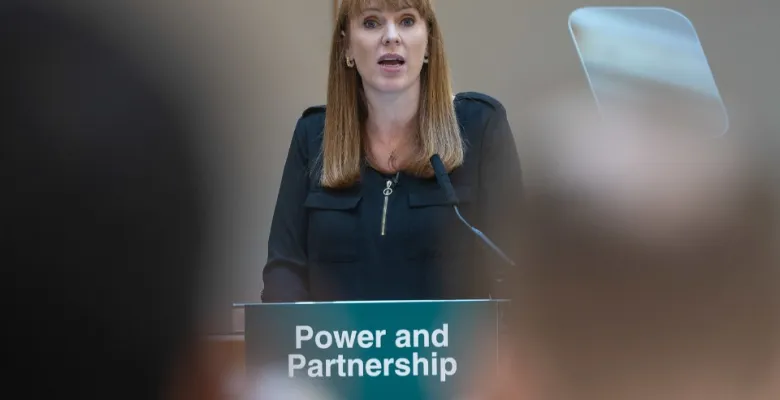
Yesterday, the Government announced one of the most significant transformations in local and regional governance since the 1970s, outlined in the Devolution White Paper. The changes announced seek to rebalance power by granting local and regional authorities with greater autonomy, reducing the concentration of power in Whitehall.
The full White Paper can be found here.
What are the plans for restructuring authorities?
The Housing Secretary, Angela Rayner MP, set out in her speech to regional mayors on Monday that the aim is to have universal coverage in England of strategic authorities, where all areas currently controlled by district and county councils will be replaced or combined to create new strategic authorities covering populations of 500,000 or more.
The Government will be taking a phased approach to delivery, accounting for where reorganisation will best unlock devolution. The Government will also improve external scrutiny of local public spending through reforms to the local audit system, and to local Government standards and oversight.
New forums such as the Council of Nations and Regions, chaired by the Prime Minister and the Mayoral Council, led by the Deputy Prime Minister, will aim to strengthen local and national government collaboration. It will be expected that national agencies such as Homes England, Great British Railways, and the Arts Council England, will adjust their operations to align with local needs, creating a more seamless public service.
The first local authorities that are expected to combine will be in areas such as Norfolk, Suffolk, and Essex. Kent and Hertfordshire are also predicted to undergo reorganisation and devolution at a later point.
What new powers will be granted to Mayors?
The Government plans to grant additional powers to Mayors across strategic authorities, simplifying decision-making through measures such as adopting simple majority voting and including a Mayor’s vote where applicable. This integrated approach will cover key areas, including housing, regeneration, local growth, transport, skills, retrofitting, and employment support. Mayors will also be expected to produce Local Growth Plans.
Key aspects of the housing and planning measures proposed include:
- Spatial Development Strategy: all areas, with or without a Strategic Authority, must produce a Spatial Development Strategy, adopted by a majority of constituent members, to accelerate homebuilding.
- Development management powers: regional Mayors will gain powers similar to the Mayor of London, including the ability to call in planning applications of strategic importance.
- Mayoral levy: mayors may charge a development levy to fund necessary infrastructure for new projects, which was previously introduced in Greater London to finance the Elizabeth Line.
- Partnership with Homes England: a stronger partnership between Homes England and Mayoral Strategic Authorities will increase Homes England’s accountability. Over time, the Government aims to move Homes England to a more regionalised model to be more responsive to economic plans for local areas.
- Funding and affordable housing: Mayors will gain control over grant funding for regeneration and housing delivery and will set the strategic direction for future affordable housing programs.
Other key changes
- Transport: Mayors will have a statutory role in governing, managing, planning, and developing the rail network, alongside increased control over buses, and road network coordination.
- Skills and employment: Mayors will take on a greater role in employment support, co-owning Local Skills Improvement Plans with employers, connecting education and training to job opportunities as part of the Youth Guarantee, and delivering employment programs under the Get Britain Working initiative.
- Environment and climate change: Mayors will oversee retrofit funding through Great British Energy Local Power Plans, coordinate heat network zoning to align with the National Energy System’s Regional Plans, and expand leadership in Local Nature Recovery Strategies.
- Supporting businesses and research: regional innovation programs and funding will be integrated into local settlements to support strategic investment proposals.
- Reforming public services: Mayors will take on greater responsibility for police, fire, and rescue services, and focus on health improvement through key roles in integrated care partnerships.
Next steps
- Expanding devolution: the Government has advanced devolution with two new Mayors and six non-mayoral agreements since July 2024, supported by a new Devolution Priority Programme for ambitious areas.
- Deepening devolution: additional powers are being granted to more areas, with six Mayoral Strategic Authorities set to receive Integrated Settlements, and potential expansion to London. Regions such as Manchester, Liverpool City Region, The Northeast, South Yorkshire, and West Midlands will receive a consolidated budget across housing, regeneration, and local growth. The Mayoral Council will help deliver the Devolution Framework, with financial details outlined in the upcoming Spending Review in 2025.
- Local government reorganisation: proposals will be invited from two-tier areas and some unitary councils to improve governance and service quality where challenges exist.
- English Devolution Bill: The Government remains committed to introducing the Devolution Bill in 2025, establishing the Devolution Framework in law to systematically grant powers to local leaders.
Currently, it is unclear whether local elections will go head in May 2025 if district and county councils are merging to form new unitary councils, however Minister for Local Government Jim McMahon MP emphasised that this would not be done without a statutory consultation.
Kanda will be monitoring the unfolding issue ahead of the Christmas recess later this week and will publish key insights as and when they unfold.